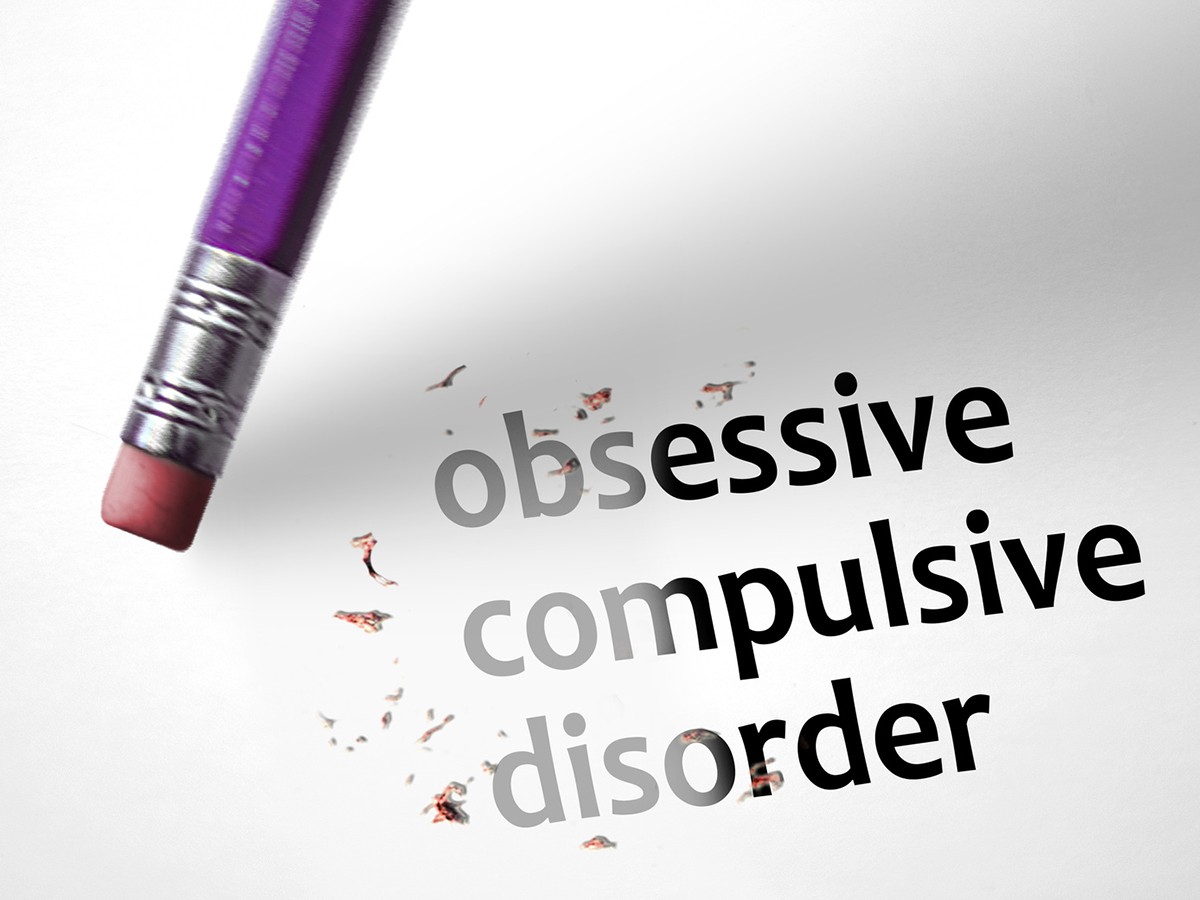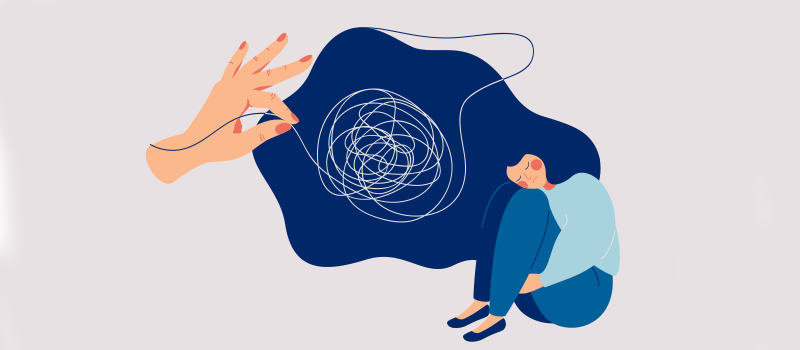Do you have a friend or family member who seems to be constantly cleaning, organizing, and checking things? If so, they may be struggling with a disorder known as obsessive-compulsive disorder or OCD. This condition is characterized by intrusive thoughts and compulsive behaviors that are difficult to control. In this blog post, we will discuss the different types of OCD-related disorders, as well as the symptoms and treatment options available.
Contents
What Is OCD?
 OCD is an anxiety disorder that causes people to have intrusive, unwanted thoughts (obsessions) and/or engage in repetitive behaviors (compulsions). OCD affects both children and adults and can cause significant impairment in a person’s ability to function at home, school, or work.
OCD is an anxiety disorder that causes people to have intrusive, unwanted thoughts (obsessions) and/or engage in repetitive behaviors (compulsions). OCD affects both children and adults and can cause significant impairment in a person’s ability to function at home, school, or work.
Symptoms of OCD can vary from person to person, but typically involve obsessions and compulsions. Obsessions are persistent, unwanted thoughts, images, or urges that occur over and over again. Compulsions are repetitive behaviors that a person feels compelled to do to try to reduce the anxiety caused by their obsessions. Common compulsions include handwashing, counting, checking things (e.g., making sure the oven is turned off), and ordering or arranging things.
People with OCD often recognize that their obsessions and compulsions are irrational, but they feel unable to control them. This can lead to a great deal of distress and anxiety. OCD can be very time-consuming, causing people to miss work, school, or important social engagements. In severe cases, it can interfere with a person’s ability to take care of their basic needs (e.g., showering, eating).
What Does “OCD-Related Disorders” Mean?
 Sometimes other disorders occur along with OCD, such as depression, anxiety disorders, eating disorders, and substance abuse. These are known as “OCD-related disorders.” It’s important to be aware of these other disorders so that you can get the help you need.
Sometimes other disorders occur along with OCD, such as depression, anxiety disorders, eating disorders, and substance abuse. These are known as “OCD-related disorders.” It’s important to be aware of these other disorders so that you can get the help you need.
There may be many reasons why someone with OCD develops another disorder. It could be that the OCD itself is causing the other disorder, or it could be that the other disorder is causing the OCD. It could also be that some other underlying factors are causing both disorders.
For example, people with OCD often have a hard time dealing with their emotions. This can lead to depression or anxiety. Or, people with OCD may turn to food or drugs to help them cope with their obsessions and compulsions. If you have OCD and you think you might also have another disorder, it’s important to talk to your doctor or a mental health professional so you can get the help you need.
Different Types of OCD- Related Disorders

There are many different types of OCD-related disorders, each with its own set of symptoms. Some of the most common include:
Body Dysmorphic Disorder (BDD)
A preoccupation with one or more perceived defects or flaws in appearance that are not observable to others. This can lead to excessive grooming, dieting, and clothing choices, as well as avoidance of social situations. BDD is often comorbid with OCD. Sometimes people with BDD will seek out cosmetic surgery to “fix” their perceived flaws. Also, there may be many physical disorders that are related to OCD such as Trichotillomania (the pulling out of one’s hair) and Tourettes (a tic disorder).
Anxiety Disorders
These include disorders such as Generalized Anxiety Disorder, Panic Disorder, Social Anxiety Disorder, and Specific Phobias. People with OCD often have one or more of these disorders as well. The symptoms of anxiety can be very similar to the symptoms of OCD, but usually, with anxiety, the person is not aware that their thoughts are irrational. In OCD, the person is usually aware that their thoughts are irrational but they still can’t help but engage in the compulsions.
Depression
Depression is a common comorbidity with OCD. The symptoms of depression can be very similar to the symptoms of OCD, but usually, with depression, the person is not aware that their thoughts are irrational. In OCD, the person is usually aware that their thoughts are irrational but they still can’t help but engage in the compulsions. Depression can also lead to physical symptoms such as fatigue, changes in appetite, and problems with sleep.
Eating Disorders
An eating disorder is any type of disorder that involves an abnormal relationship with food. This can include binge eating, anorexia nervosa, bulimia nervosa, and other disorders. People with OCD often have trouble with food and eating because they are obsessed with contamination and cleanliness. For example, someone with OCD might be afraid of contracting a disease from food, so they may avoid eating altogether. Or, someone with OCD might have obsessive thoughts about their weight or body shape, which can lead to anorexia or bulimia.
Substance Abuse
People with OCD may turn to drugs or alcohol to help them cope with their obsessions and compulsions. This can lead to addiction and other problems. In substance abuse, the person is usually not aware that their thoughts are irrational. In OCD, the person is usually aware that their thoughts are irrational but they still can’t help but engage in the compulsions. It may also mean that people with OCD are more likely to suffer from physical disorders that are related to their addiction such as liver disease or heart disease.
Hoarding Disorder
Hoarding disorder is characterized by the persistent difficulty of discarding or parting with possessions, regardless of their actual value. This can lead to cluttered and cramped living conditions. People with OCD may hoard because of their fear of contamination or because they think they might need the items in the future. Hoarding can be a very serious problem because it can lead to fire hazards, health problems, and eviction from one’s home.
Self-Harm
Another potential complication of OCD is self-harm. This can include cutting, burning, or other forms of injury to oneself. People with OCD may self-harm as a way to relieve their anxiety or as a way to punish themselves for their “bad” thoughts. Self-harm is a very serious problem and should be treated by a mental health professional. Sometimes self-harm also leads to suicide. Also, sometimes people with OCD will seek out cosmetic surgery to “fix” their perceived flaws.
How To Treat OCD-Related Disorders?

Treat OCD-related disorders by first addressing the OCD. If the person with OCD can manage their OCD, then the related disorder will likely improve as well. However, if the OCD is severe and unmanageable, then treating the related disorder may be the best option. In either case, it is important to seek professional help to develop a treatment plan that is right for you.
There are many different types of treatment options for OCD-related disorders. Some of these are:
Medications
Medications are often used to treat OCD-related disorders. The most common type of medication is antidepressants. Antidepressants can help to reduce the symptoms of OCD-related disorders by increasing the levels of serotonin in the brain.
Other types of medications that may be prescribed include anti-anxiety medications, antipsychotics, and mood stabilizers. Many natural and alternative treatments can be effective in treating OCD-related disorders.
Cognitive-behavioral therapy
Cognitive-behavioral therapy (CBT) is a type of psychotherapy that can help to change the way you think about and respond to your OCD symptoms. CBT can be an effective treatment for OCD-related disorders by helping you to understand your thoughts and behaviors, and by teaching you how to change them. In this type of therapy, you will work with a therapist to identify your OCD triggers and develop coping strategies to deal with them.
Exposure and response prevention
Exposure and response prevention (ERP) is a type of CBT that involves gradually exposing yourself to your OCD triggers without engaging in your usual compulsions or avoidance behaviors. This can help you to learn how to manage your OCD symptoms more effectively. In ERP, you will work with your therapist to develop a hierarchy of your OCD triggers, and then you will begin to expose yourself to the trigger at the bottom of the list. As you become more comfortable with this, you will gradually move up the list.
Support groups
Support groups can provide you with information and support from other people who are dealing with OCD-related disorders. In a support group, you can share your experiences and learn from others who understand what you are going through. This can be a helpful way to cope with your symptoms and learn more about your disorder. Some of these support groups also offer online resources that can be accessed from home.
Self-Care
An important part of treating OCD-related disorders is to practice self-care. This means taking care of yourself emotionally and physically. Some ways to do this include: getting regular exercise, eating a healthy diet, getting enough sleep, and finding ways to relax and reduce stress. When you take care of yourself, you will be better able to manage your symptoms and cope with your disorder.
Some of these self-care activities are:
Eating good food: One of the most important things you can do for your mental health is to eat a nutritious diet. Eating plenty of fruits, vegetables, and whole grains will help you to feel your best and give you the energy you need to cope with your symptoms.
Getting regular exercise: Exercise is not only good for your physical health, but it can also improve your mental health. Exercise can help to reduce stress, improve your mood, and increase your energy level. It is important to find an exercise that you enjoy so that you are more likely to stick with it.
Getting enough sleep: Getting enough sleep is essential for good mental health. When you are well-rested, you will be better able to deal with stress and manage your symptoms. Make sure to get at least seven to eight hours of sleep each night.
Finding ways to relax: It is important to find ways to relax and reduce stress. Some people find that yoga, meditation, or deep breathing exercises can help them to feel more relaxed. You may also want to try listening to calming music or reading a relaxing book.
Trying to stay positive: When you are dealing with a mental health disorder, it is important to try to stay positive. This can be a challenge, but there are some things you can do to help yourself. One way to stay positive is to focus on the good things in your life. Another way is to find an activity that you enjoy and make time for it every day. Doing things that make you happy will help you to feel better about yourself and your situation.
If you or someone you know is struggling with OCD-related disorders, there are many resources available to help. treatment options exist that can be effective in managing symptoms. With proper treatment and support, many people can live fulfilling lives despite their disorders.
Conclusion
OCD is not only frustrating and debilitating but can also be very isolating. Many OCD-related disorders can further complicate things.
If you think you may have OCD, or know someone who does, there are a few things to keep in mind. First and foremost, OCD is treatable. With the right treatment plan, which may include therapy and medication, many people with OCD can live full and productive lives. Secondly, it’s important to remember that you are not alone. There are millions of people out there struggling with OCD every day. And finally, don’t be afraid to reach out for help. The sooner you get started on treatment, the better your chances of recovery will be. Your mental health — Your psychological, emotional, and social well-being — has an impact on every aspect of your life.
Hope this article was of help to you! If you are suffering from OCD, you may seek help from Therapy Mantra. We have a team of highly trained and experienced therapists who can provide you with the tools and skills necessary for overcoming OCD. Contact us today to schedule an online therapy or download our free OCD treatment app on Android or iOS for more information.


